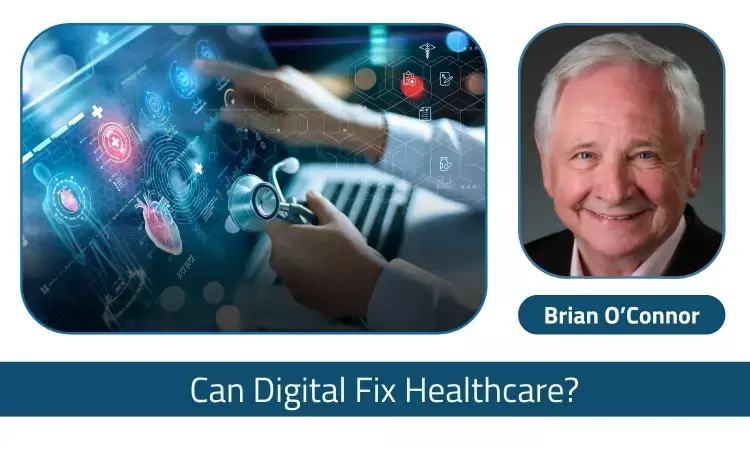- Home
- Medical news & Guidelines
- Anesthesiology
- Cardiology and CTVS
- Critical Care
- Dentistry
- Dermatology
- Diabetes and Endocrinology
- ENT
- Gastroenterology
- Medicine
- Nephrology
- Neurology
- Obstretics-Gynaecology
- Oncology
- Ophthalmology
- Orthopaedics
- Pediatrics-Neonatology
- Psychiatry
- Pulmonology
- Radiology
- Surgery
- Urology
- Laboratory Medicine
- Diet
- Nursing
- Paramedical
- Physiotherapy
- Health news
- Fact Check
- Bone Health Fact Check
- Brain Health Fact Check
- Cancer Related Fact Check
- Child Care Fact Check
- Dental and oral health fact check
- Diabetes and metabolic health fact check
- Diet and Nutrition Fact Check
- Eye and ENT Care Fact Check
- Fitness fact check
- Gut health fact check
- Heart health fact check
- Kidney health fact check
- Medical education fact check
- Men's health fact check
- Respiratory fact check
- Skin and hair care fact check
- Vaccine and Immunization fact check
- Women's health fact check
- AYUSH
- State News
- Andaman and Nicobar Islands
- Andhra Pradesh
- Arunachal Pradesh
- Assam
- Bihar
- Chandigarh
- Chattisgarh
- Dadra and Nagar Haveli
- Daman and Diu
- Delhi
- Goa
- Gujarat
- Haryana
- Himachal Pradesh
- Jammu & Kashmir
- Jharkhand
- Karnataka
- Kerala
- Ladakh
- Lakshadweep
- Madhya Pradesh
- Maharashtra
- Manipur
- Meghalaya
- Mizoram
- Nagaland
- Odisha
- Puducherry
- Punjab
- Rajasthan
- Sikkim
- Tamil Nadu
- Telangana
- Tripura
- Uttar Pradesh
- Uttrakhand
- West Bengal
- Medical Education
- Industry
A Broken Health System - Can Digital Health Fix It? - Brian O'Connor

Health systems worldwide are under enormous strain. The demand for services is increasing, while resources remain limited, leaving millions of citizens underserved. The question is often asked: can digital health provide a solution to this broken system? My answer is simple: it already is.
Take India as an example. Today, more than 810 million people already have their medical record accessible on their phone. This unprecedented leap means that citizens can directly manage their own health information, improving continuity of care and empowering individuals to take charge of their wellbeing.
In Rwanda, Africa, by December of this year the entire population will have the same access, with other African countries moving rapidly toward the same objective. The United States and much of Europe are far behind India and Africa in this regard. The lesson is clear: when citizens are given the tools to manage their own health, they become more engaged, access to services improves, and barriers such as remoteness or lack of infrastructure are more easily overcome.
A live, connected health network is already transforming both healthcare delivery and disease prevention. Is it perfect yet? No. But is it a huge improvement compared to even a year ago? Absolutely. This digital foundation also encourages the private sector to innovate and offer services directly to individuals, creating both better care and new economic opportunities.
We are already witnessing the impact:
- Remote monitoring is enabling people to manage chronic conditions more effectively.
- Teleconsultations allow patients to chat with doctors regardless of where they live.
- Start-ups across Africa are building sustainable businesses by offering digital health services to citizens previously excluded from healthcare.
All of this is not theory; it is happening today. Digital health is filling the gaps left by broken health systems and doing so in a way that will only get stronger with time.
For too long, conversations have focused on what is wrong with healthcare. My message is simple: stop talking and start doing. Digital health is not just a promise, it is already delivering better care, empowering citizens, and driving economic growth. The challenge now is for leaders, policymakers, and practitioners to embrace this momentum and scale it further.
The health system may be broken, but digital health is proving every day that it can fix it.
Disclaimer: The views expressed in this article are of the author and not of Medical Dialogues. The Editorial/Content team of Medical Dialogues has not contributed to the writing/editing/packaging of this article.
Brian O’Connor Chair, Global Health Connector, He is an experienced consultant, investor, and company director with a global career across the UK, US, and Hong Kong. He has founded over 36 start-ups, mainly in the health sector, and advises governments and organizations on healthcare and Connected Health. As founder of the ECHAlliance, he leads a global network driving health innovation. He also chairs and invests in several innovative companies worldwide.


